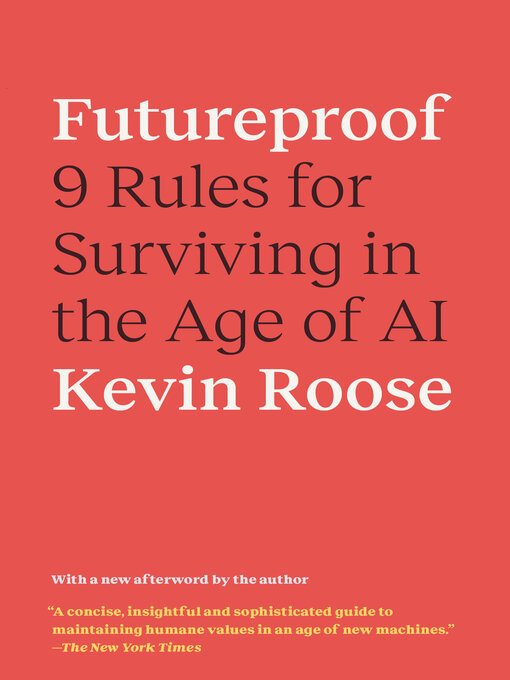
“Artificial intelligence can be terrifying, but Kevin Roose provides a clear, compelling strategy for surviving the next wave of technology with our jobs—and souls—intact.”—Charles Duhigg, author of The Power of Habit
It’s time to get real about AI.
After decades of hype and sci-fi fantasies, AI—artificial intelligence—is leaping out of research labs and into the center of our lives. Millions of people now use tools like ChatGPT and DALL-E 2 to write essays, create art and finish coding projects. AI programs are already beating humans in fields like law, medicine and entertainment, and they’re getting better every day.
But AI doesn’t just threaten our jobs. It shapes our entire human experience, steering our behavior and influencing our choices about which TV shows to watch, which clothes to buy, and which politicians to vote for.
And while many experts argue about whether a robot apocalypse is near, one critical question has gone unanswered:
In a world where AI is ascendant, how can humans survive and thrive?
In Futureproof: 9 Rules for Surviving in the Age of AI, New York Times technology columnist Kevin Roose shares the secrets of people and organizations that have successfully navigated waves of technological change, and explains what skills are necessary to stay ahead of the curve today, with lessons like
• Be surprising, social, and scarce
• Resist machine drift
• Leave handprints
• Demote your devices
• Treat AI like a chimp army
Roose rejects the conventional wisdom that in order to compete with AI, we have to become more like robots ourselves—hyper-efficient, data-driven workhorses. Instead, he says, we should focus on being more human, and doing the kinds of creative, inspiring, and meaningful things even the most advanced algorithms can’t do.
-
Creators
-
Publisher
-
Release date
March 9, 2021 -
Formats
-
Kindle Book
-
OverDrive Read
- ISBN: 9780593133354
-
EPUB ebook
- ISBN: 9780593133354
- File size: 1639 KB
-
-
Accessibility
-
Languages
- English
-
Reviews

Loading
Formats
- Kindle Book
- OverDrive Read
- EPUB ebook
subjects
Languages
- English
Why is availability limited?
×Availability can change throughout the month based on the library's budget. You can still place a hold on the title, and your hold will be automatically filled as soon as the title is available again.
The Kindle Book format for this title is not supported on:
×Read-along ebook
×The OverDrive Read format of this ebook has professional narration that plays while you read in your browser. Learn more here.